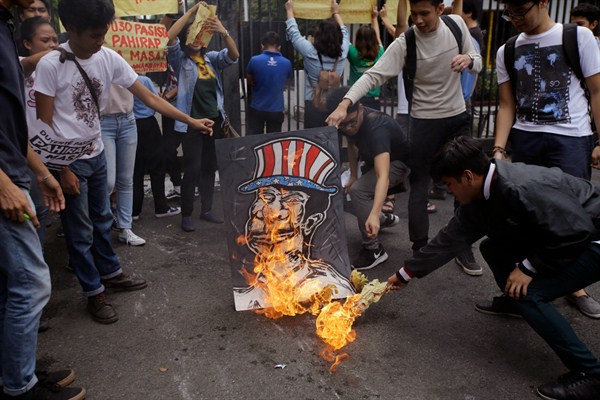Philippine President Rodrigo Duterte is approaching the third calendar year of his bombastic term in office, but for all his tough-guy language, his policies on several critical issues remain muddled and contradictory. Duterte’s blunt, aggressive rhetoric—often veering into profane rants, including one last week against the European Union—has played well at home, keeping his popularity high. A September poll by Pulse Asia showed that about 75 percent of Filipinos have trust in Duterte, despite the notable gap between his talk and his actions in three key areas.
Duterte was elected in part on promises to fight economic and political elites and help combat entrenched poverty in the Philippines, one of the most unequal societies in Asia, where more than a fifth of the population lives in poverty. He historically held left-leaning views on economic issues, and his vows to combat poverty were an integral part of his populist appeal. He studied in university under one of the Philippines’ most famous communists. But, so far, the economy under Duterte has not looked that much different from the economy under his predecessor, Benigno Aquino III, who was hardly a populist.
Indeed, the Philippines continues to record high growth rates, while Duterte’s administration has taken pains to welcome foreign investors. With consumer spending still strong, Duterte has picked a group of technocrats to manage economic policy. He also has rolled out a five-year plan designed to boost the economy, partly by upgrading the Philippines horrendous infrastructure—and, in so doing, fostering job creation. Duterte does seem dedicated to the infrastructure component of his plan, and his signal to build seems to be working: Infrastructure contracts are being bid out rapidly across the archipelago.

